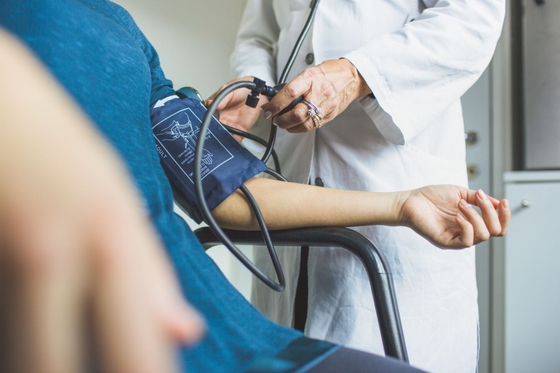
What is an INR test? Do I need to have them?
Blog: 27 March 2023
If you have a heart or medical condition that puts you at a higher risk of having harmful blood clots, your doctor might prescribe a medicine called warfarin.
Warfarin is a type of medicine called an anticoagulant. It works by stopping harmful blood clots from forming by making your blood clot less easily. This is a good thing because harmful blood clots can cause a heart attack or stroke.
Different people need to take different amounts of warfarin to achieve the right level of clotting. It’s important that your blood doesn’t clot too fast, or too slowly, but at just the right speed.
Taking too little warfarin means your blood may still form harmful clots. Too much, and bleeding can be a problem. Changes in your diet and other medicines you take can also mean a change to the amount of warfarin you need to take.
If you are taking warfarin, your doctor will ask you to have something called an ‘INR test’.
What is an INR test?
INR stands for ‘international normalised ratio’. It’s a blood test that measures how long it takes your blood to form a clot. Your INR test results help your doctor to work out the best dose of warfarin for you.
The idea is to keep your results within an INR ‘target range’. For most people taking warfarin, the INR range is between 2.0 and 3.0. Your target INR range may be slightly different depending on your circumstances. Your doctor will tell you what your range should be.
If your result is above the target range, it means that your blood will take longer than normal to clot. This can increase the chance of bleeding. If your INR result is below the target range, it means your blood clots too fast, and your chance of developing harmful blood clots is higher.
If you’re not taking warfarin, you normally won’t need to have an INR test.
How often should I have an INR test?
When you first start taking warfarin, your doctor will ask you to have regular INR blood tests. This could be as often as every 1-2 days for the first week.
Once you reach your target INR, and you are taking a consistent warfarin dose, you will still need to have regular INR tests. But you may not need to have them as often.
What do I do once I’ve had my INR test?
When you get your INR test results, make an appointment to talk to your doctor about your results. If your INR results are out of the target range, your doctor will tell you if you need to change the amount of warfarin you take. You may need to have INR tests more often for a while.
If you have set up your My Health Record, you may be able to access your INR test results as soon as they’re uploaded to My Health Record. This could be as soon as 24 hours after having your test and is the quickest way to get your results. *
You can also use My Health Record keep track of all your diagnostic tests (including your INR results), warfarin and other medicines you might be taking, vaccinations you’ve had, and more.
You can access your My Health Record online, by downloading and using the new my health app, or the healthdirect or Health Now apps that also link to My Health Record. You can find out how to set up your online My Health Record here.
Top tips for living well with warfarin
Get the knowledge you need to live your best life with warfarin. Our helpful poster is just a download away! Don't miss out on invaluable insights and practical tips for staying healthy and thriving.
You might also be interested in

Medical tests for heart disease
Discover the types of heart tests used to detect heart disease, heart blockages, or heart attacks, from routine heart tests to advanced tests for heart disease.

5 warning signs of a heart attack that you may not know
Just as no two hearts beat the same, no two heart attacks are the same, even for the same person. It is different for everyone and the warning signs someone experiences before a heart attack can vary drastically from person to person.

Blood pressure and your heart
Learn how blood pressure affects your heart health. Find out what high blood pressure means, how to measure it, and ways to keep it under control.
Last updated09 April 2025